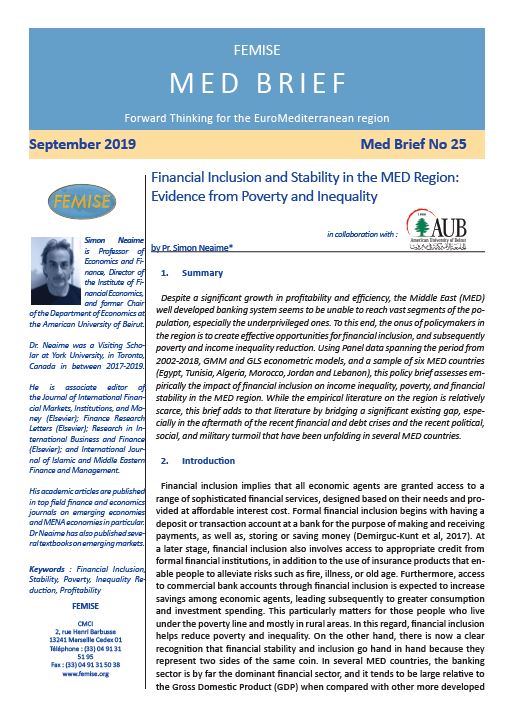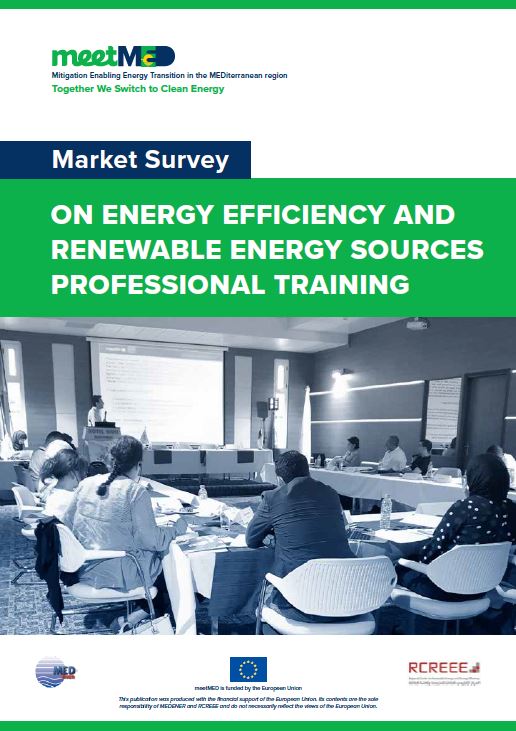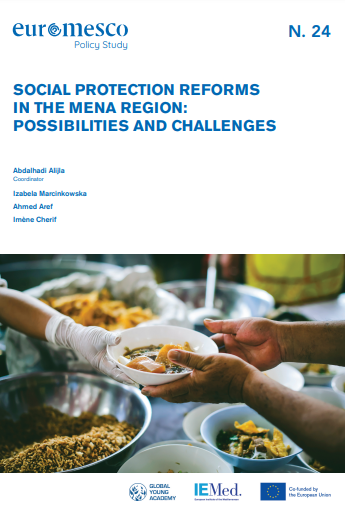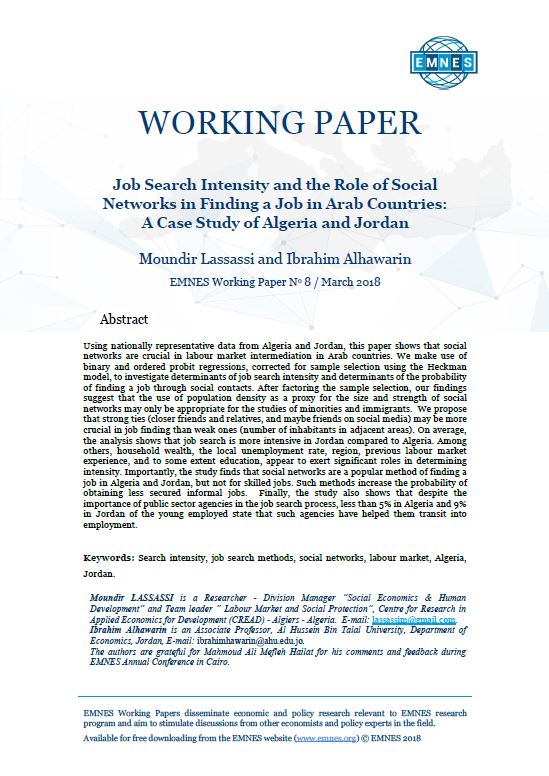FEMISE MED BRIEF 25: Financial Inclusion and Stability in the MED Region

Despite a significant growth in profitability and efficiency, the Middle East (MED) well developed banking system seems to be unable to reach vast segments of the population, especially the underprivileged ones. To this end, the onus of policymakers in the region is to create effective opportunities for financial inclusion, and subsequently poverty and income inequality reduction.
Using Panel data spanning the period from 2002-2018, GMM and GLS econometric models, and a sample of six MED countries (Egypt, Tunisia, Algeria, Morocco, Jordan and Lebanon), this policy brief assesses empirically the impact of financial inclusion on income inequality, poverty, and financial stability in the MED region. While the empirical literature on the region is relatively scarce, this brief adds to that literature by bridging a significant existing gap, especially in the aftermath of the recent financial and debt crises and the recent political, social, and military turmoil that have been unfolding in several MED countries.
The FEMISE Policy Brief series MED BRIEF aspires to provide Forward Thinking for the EuroMediterranean region. The briefs contain succinct, policy-oriented analysis of relevant EuroMed issues, presenting the views of FEMISE researchers and collaborators to policy-makers.
Latest Publications






























 Syria
Syria 



